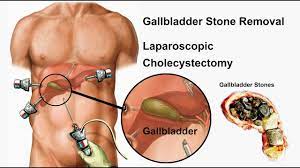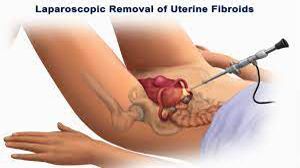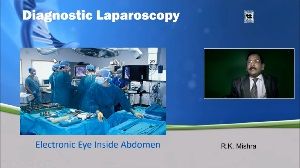Pioneering Progress: Unveiling the Role of Laparoscopy in Cancer Surgery
Add to
Share
1,258 views
Report
2 years ago
Description
The field of cancer surgery has witnessed a significant breakthrough with the advent of laparoscopy, a minimally invasive surgical technique that has revolutionized the way cancer surgeries are performed. With its precise visualization and meticulous approach, laparoscopy has unveiled a new era in the role of surgery for cancer treatment. Laparoscopy plays a crucial role in the diagnosis, staging, and treatment of various types of cancer. This innovative approach involves the use of specialized instruments and a laparoscope, a thin tube equipped with a camera, inserted through small incisions in the abdomen. The camera provides high-definition images of the surgical site, allowing surgeons to navigate and perform intricate procedures with enhanced precision. One of the key benefits of laparoscopy in cancer surgery is its ability to provide accurate staging of the disease. By exploring the abdominal and pelvic regions, laparoscopy enables surgeons to assess the extent of cancer spread, determining the most appropriate treatment plan. This precise staging information helps guide the therapeutic approach, ensuring optimal patient outcomes. In addition to staging, laparoscopy also plays a vital role in tumor resection, where the primary goal is to remove cancerous tissue. Through small incisions, surgeons can skillfully maneuver laparoscopic instruments to excise tumors while minimizing damage to healthy surrounding tissues. The meticulous approach of laparoscopy aids in preserving organ function and improving post-operative recovery. Laparoscopy offers advantages over traditional open surgery in terms of patient outcomes and quality of life. The smaller incisions result in reduced post-operative pain, decreased blood loss, and shorter hospital stays. Patients typically experience faster recovery, enabling them to resume their daily activities and cancer treatment regimens more quickly. Furthermore, laparoscopy can be utilized for procedures such as lymph node dissection, which is essential for accurately determining the spread of cancer cells. By removing and examining lymph nodes, laparoscopy helps determine the stage of cancer and assists in formulating appropriate treatment plans, including the administration of adjuvant therapies. The role of laparoscopy in cancer surgery extends beyond treatment. It also enables the collection of tissue samples for biopsy, aiding in accurate diagnosis and providing crucial information for personalized treatment decisions. Laparoscopic biopsies offer a minimally invasive alternative to open surgical procedures, reducing patient discomfort and facilitating a faster diagnosis. It is important to note that the successful implementation of laparoscopy in cancer surgery relies on the expertise of highly skilled surgeons who have undergone specialized training. These surgeons possess advanced knowledge of laparoscopic techniques and are adept at applying them to complex cancer cases. Laparoscopy has emerged as a groundbreaking technique in the field of cancer surgery, revolutionizing the way cancer is diagnosed, staged, and treated. By utilizing small incisions and specialized instruments, laparoscopy allows surgeons to navigate and perform precise procedures with exceptional accuracy. The role of laparoscopy in cancer surgery is multi-faceted. It enables surgeons to accurately stage the disease, providing critical information about the extent of cancer spread and guiding treatment decisions. This precise staging helps tailor treatment plans to individual patients, optimizing the chances of successful outcomes. Laparoscopy also plays a vital role in tumor resection, allowing surgeons to remove cancerous tissue while minimizing damage to healthy surrounding structures. The minimally invasive nature of laparoscopy results in reduced post-operative pain, shorter hospital stays, and faster recovery times compared to traditional open surgery. Patients benefit from improved quality of life and a smoother transition to post-operative care. Furthermore, laparoscopy facilitates lymph node dissection, a crucial procedure for determining the spread of cancer cells. By removing and examining lymph nodes, surgeons can accurately stage the disease and make informed decisions regarding additional treatment options, such as radiation or chemotherapy. In addition to its diagnostic and treatment capabilities, laparoscopy offers the advantage of performing minimally invasive biopsies. This allows for the collection of tissue samples for accurate diagnosis, enabling personalized treatment approaches tailored to each patient's specific cancer type and stage. The successful implementation of laparoscopy in cancer surgery relies on the expertise of skilled surgeons who have undergone specialized training in laparoscopic techniques. These surgeons possess a deep understanding of the intricacies of cancer surgery and utilize laparoscopy to deliver optimal patient outcomes. In summary, laparoscopy has revolutionized the role of surgery in cancer treatment. Its precise staging, minimally invasive tumor resection, lymph node dissection capabilities, and minimally invasive biopsies contribute to improved patient outcomes, reduced post-operative discomfort, and faster recovery. As laparoscopic techniques continue to advance, they will play an increasingly significant role in the fight against cancer, offering patients a more precise and minimally invasive approach to their treatment journey.
Similar Videos






